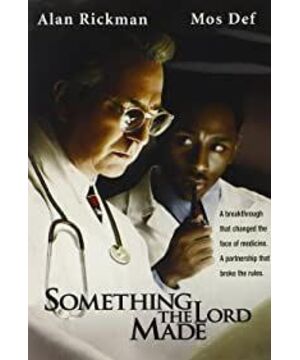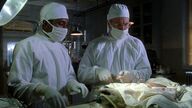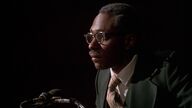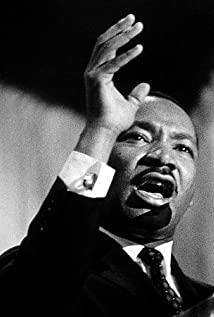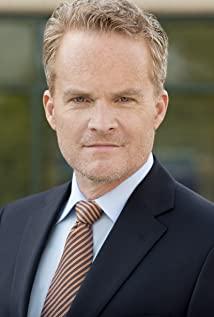In this play, Brekla is really quite Rickman, or Alan Rickman is very skilled and can perfectly express the style. Seeing blood in a satirical sentence is like reading a poem, and a raised eyebrow can show the arrogance and boredom of "I'm not targeting anyone, but everyone here, it's all garbage".
The portrait of Blakela at the end is more bookish and peaceful. It is true that the portraits are all beautified, but looking at this portrait, I always feel that maybe in the past time, the two people can get along more warmly.
Then back to the movie.
This is a cooperative relationship that is basically harmonious and has congenital defects. Vivian's resistance is always negative, perhaps because True Love suffocated his fighting spirit from the very beginning and executed him slowly. Compared with his brother, he has never understood resistance, and protests are the last outbreak. The poster shows Vivian looking up at Brekla in the shadows. He is sensitive at that moment, and Brekla has nothing else to do in front of medicine.
It is said that good doctors should be compassionate, but Brekla's eyes seem to be filtered, and only the part on the operating table can be seen. I also seem to be invulnerable, the only vulnerable expressions are admitting in front of my wife that I can't sleep, and admitting in front of Vivian that I am terrified of surgery. Compared to his toughness in front of other doctors, children's parents, and priests, he always wondered whether he had a family-like relationship with Vivian—perhaps closer than family members, cultivated on the same front, and nourished by trust. intimacy. But his approvals all happened in private, even if he was anxious and called Vivian back to the operating table in front of a crowd of watching doctors. He leaves no place for Vivian in the secular coronation.
This is the negligence of a vested interest. He had status, wealth, and was able to earn his reputation with his brain and his hands. So he ignored them, and at the same time, more and more helping hands ignored all he should have received.
Decades passed, and Blakela was pushed forward in a wheelchair by Vivian. The first time Blakela came in, he wanted to take Vivian to browse the place. It was a tender moment shared with a proud disciple, and someone interrupted him soon. Racial discrimination ran in front of them, Blakela shrugged, turned and left. He probably didn't think at the time that he would be rejected by Vivian later.
The faith was firm, so they performed miracles that belonged to man. And everything outside the operating table... that is something that needs to be treated with empathy and caution.
Only the portraits hanging on the walls are intimate.
View more about Something the Lord Made reviews


